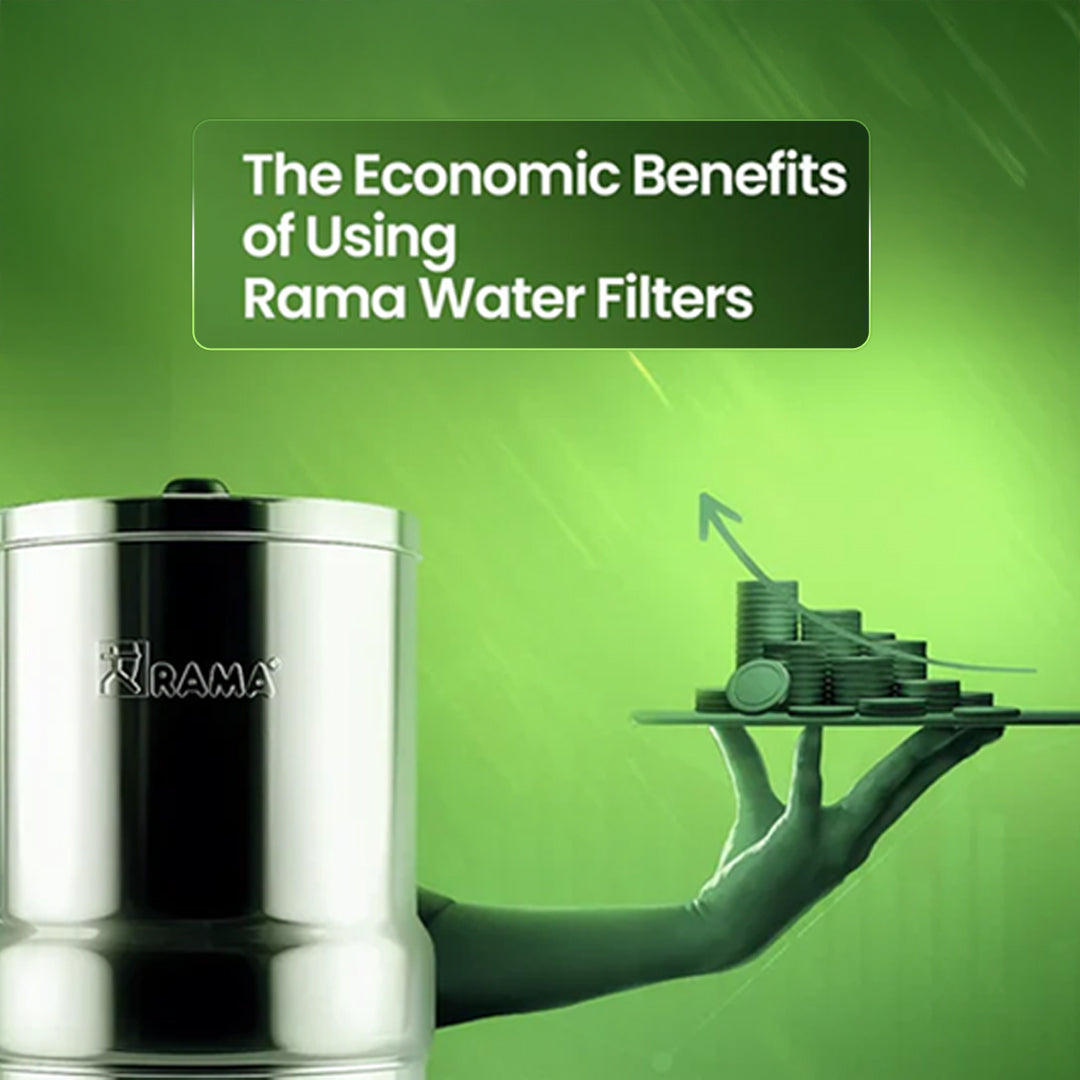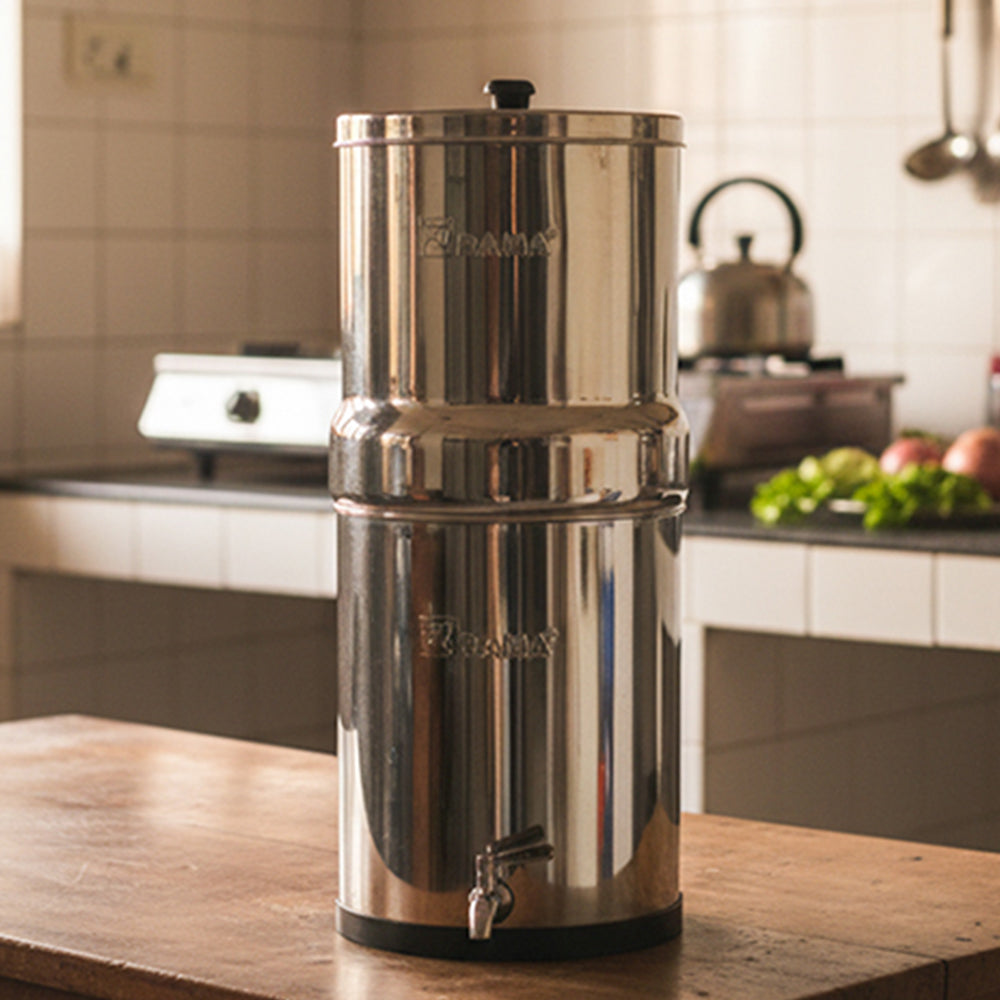How to Choose a Water Filter for Tap/Borewell Water?
 Many medical experts advise drinking 8 to 10 glasses of water daily. This is because water is crucial for the body’s good health and overall well-being.
Many medical experts advise drinking 8 to 10 glasses of water daily. This is because water is crucial for the body’s good health and overall well-being.
While you may have set water drinking reminders and downloaded hydration apps to meet your daily consumption requirements,
Are you sure the water you drink is safe and pure?
Do you know where it is coming from?
Is it free from bacteria, viruses, and other harmful contaminants?
Ensuring the purity of water should be your utmost priority whether you rely on the tap or draw water from a borewell. Drinking untreated water can result in various diseases and infections like diarrhea, gastroenteritis, and food poisoning.
A water filter can keep you protected from harmful substances by improving the quality of water. However, deciding which water filter suits your needs the best when you have so many options available can be confusing. Let’s start by understanding your water source.
Table of Contents
- Understanding Your Water Source: Tap vs. Borewell
- How to Choose a Water Filter for Tap/Borewell Water?
- How Does a Gravity Water Filter Work?
- How Does Rama Water Filter Help?
- Wrapping Up
Understanding Your Water Source: Tap vs. Borewell -
- Tap water: Tap water is mostly supplied by municipal authorities. It undergoes several treatment processes to meet safety standards. However, it may still have residual sediment, chlorine, heavy metals, and other contaminants attracted from aging pipes.
- Borewell water: Borewell water is drilled and pumped from the ground. Its quality can vary greatly depending on the geographical area. Often, it contains high quantities of heavy metals and sometimes harmful contaminants like pesticides or arsenic.
While you can drink tap or borewell water directly, it is not 100% safe because of the contamination levels. The presence of bacteria, viruses, and heavy metals like arsenic and fluoride can harm your body, leading to diseases and other improper health conditions.
Thus, before drinking tap or borewell water, you must purify it using an efficient water filter.
When deciding on a water filter, activated carbon filters are an effective option to consider, especially for removing harmful contaminants while preserving essential minerals.
To learn more about activated carbon water filters, read our blog "Why Activated Carbon Water Filter Should Be Your Water Purification Choice" where we explore their benefits in detail.
How to Choose a Water Filter for Tap/Borewell Water?
Different types of water filters can clean tap/borewell water. Before choosing one, you must consider the following factors.
Budget: Evaluate the filter’s initial cost and ongoing maintenance expenses to ensure it is affordable and within your budget.
Water quality: Get your water tested to understand the specific contaminants present.
Water consumption: Determine the volume of water your household requires and ensure the filter can handle the same.
Installation procedure and maintenance requirements: Some filters require professional installation and regular maintenance.
How Does Rama Water Filter Help?
Gravity Lite water filter from Rama Water Filter can elevate your water quality today.
The filter depends on gravity for its functionality and can effectively purify regular tap water, improving its quality and taste. It removes 99.999% of bacteria, retains the essential materials your body requires, and shields the water from harmful chemicals. The filter operates without electricity, making it fit for operation 24/7, even during power cuts.
Benefits of Rama Gravity Water Filter
Effective purification: The water filter performs a three-stage purification process to remove all suspended particles and give clean and safe drinking water.
Chemical-free water purification: The water filter does not use any chemicals or organic products for the purification process.
Retains essential minerals: Unlike RO, UF, and UV filters, Rama gravity filters retain the water’s essential minerals to support your body’s well-being.
Affordability: Gravity-based water filters are cheaper than electric ones. They also do not require electricity to function. Thus, their purchase and operational expenses don’t burn a hole in your pocket.
Easy to use: These filters don’t require much effort. You fill the device’s top chamber with water, and the purification starts through the filters by gravity.
Easy installation: You can install and maintain the water filter without a professional’s assistance. All it takes is two minutes. You also don’t need any tools.
Easy maintenance: Rama’s water filters have a simple structure and functionality. As a result, their maintenance is easy.
Portability: These water filters are highly portable. You can carry them wherever you require a water filter and fulfill your outdoor drinking water needs.
Zero water wastage: The filtration system does not waste even a drop of water during purification.
Various sizes: The filter is available in different sizes, such as 12 liters, 17 liters, 24 liters, and 32 liters, allowing you to select the required capacity for your family.
Rama Gravity Water Filter is ideal for anyone wanting to improve the quality, safety, purity, and taste of their tap water or borewell water.
Wrapping Up
A water filter can help to ensure your water is safe for consumption. Knowing your water source can help you make a better decision on which water filter to purchase. Tap and borewell water contain varied levels of contamination. They can both be effectively purified using a gravity water filter.
A gravity water filter has many advantages for treating tap and borewell water. Rama Gravity lite Water Filter is a cost-efficient choice for removing impurities and filtering tap water. It eliminates bacteria, viruses, lead, visible substances, chlorine, etc., effectively. It makes the water clean, removes bad odor, and improves taste.
So, if the quality of water worries you, and you want to drink pure and safe water, get your Rama Water Filter today.





